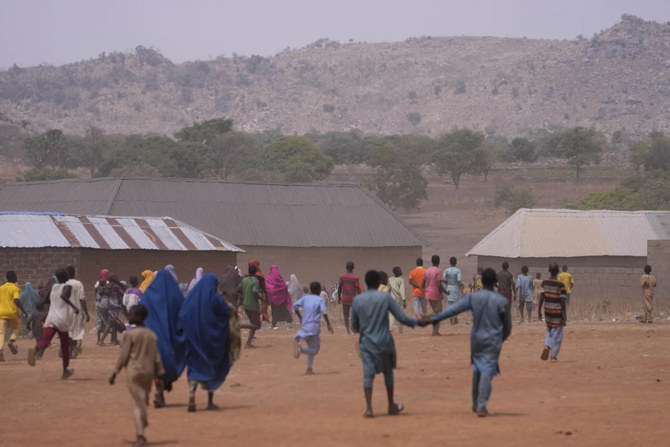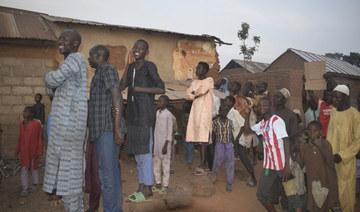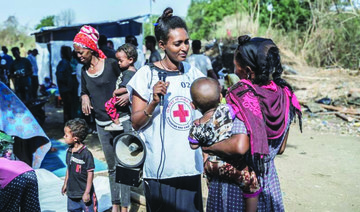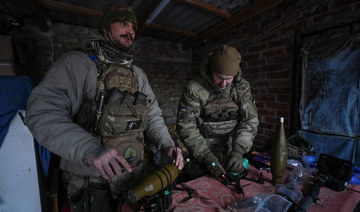ABUJA, Nigeria: Nigeria’s leader has ruled out the payment of ransoms for nearly 300 schoolchildren abducted from their school in the conflict-hit north a week ago, raising questions from analysts on Thursday about how best to rescue the children without hurting them.
Meanwhile, at least two people with extensive knowledge of the security crisis in Nigeria’s northwest told The Associated Press the abductors of the schoolchildren in the state of Kaduna are known and are hiding in the vast ungoverned and unoccupied forests of the region. They both urged the government to engage in dialogue with the armed groups to resolve the protracted conflict.
At least 1,400 students have so far been kidnapped from Nigerian schools since the first major school abduction — in Borno state’s Chibok village in 2014 — stunned the world. Most of those eventually released only regained their freedom after ransom payments, according to their schools and parents, even though the Nigerian government does not admit to paying ransom.
On Wednesday, Nigeria’s information minister Mohammed Idris told reporters that President Bola Tinubu directed security agencies to urgently rescue the schoolchildren and “in the process to ensure that not a dime is paid for ransom.”
No group has claimed responsibility for the Kaduna attack. Local residents blamed bandit groups known for mass killings and kidnappings for ransom in northwestern and central regions, most of them herders in conflict with host communities.
Unlike the Chibok girls, who were seized by Islamic militants from the Boko Haram group, no religious motive is suspected in the most recent abductions.
The mastermind of the Kaduna abduction is known, as are other bandit leaders, said Murtala Ahmed Rufa’i, an associate professor of peace and conflict studies at Usmanu Danfodiyo University, in Sokoto state, and one of Nigeria’s foremost conflict researchers.
“His father is alive,” he said of the suspect behind the Kaduna abduction. “These bandits are people that are known by their names, families and by their locations. If you want to engage, you talk to the parents. They are criminals (but) still have parents that they listen to,” he said.
At least 100 of the schoolchildren abducted in Kaduna are estimated to be aged 12 or younger, fitting an established pattern, with children seen as easy targets to mount pressure on the government.
The children’s abduction is not driven by the need for ransoms and such abductions can only be resolved through negotiations with the armed groups, according to Sheikh Ahmad Gumi, a Nigerian cleric known to have access to the bandits and who has negotiated with them in the past.
“It is more than an economic motive,” Gumi said, saying there is “an underground ethnic war” between the herdsmen from the Fulani ethnic group and other, more urbanized parts of Nigeria. His comments echoed claims made previously by the herdsmen that they struggle with less development than other regions.
Security operations to rescue those kidnapped sometimes stretch into months, leaving families desperate to meet the ransom demands.
“People whose relations are kidnapped don’t cooperate with security agencies. Otherwise, some of this money being paid, since they are not electronically transferred, could be traced,” said Mike Ejiofor, a former director of Nigeria’s secret police.
The minister’s comments suggest the government has “other alternatives to use to free those people,” said Ejiofor. However, the use of force could have serious consequences, he warned. “To go and do it forcefully, I think we will have some collateral damage,” he said.
























